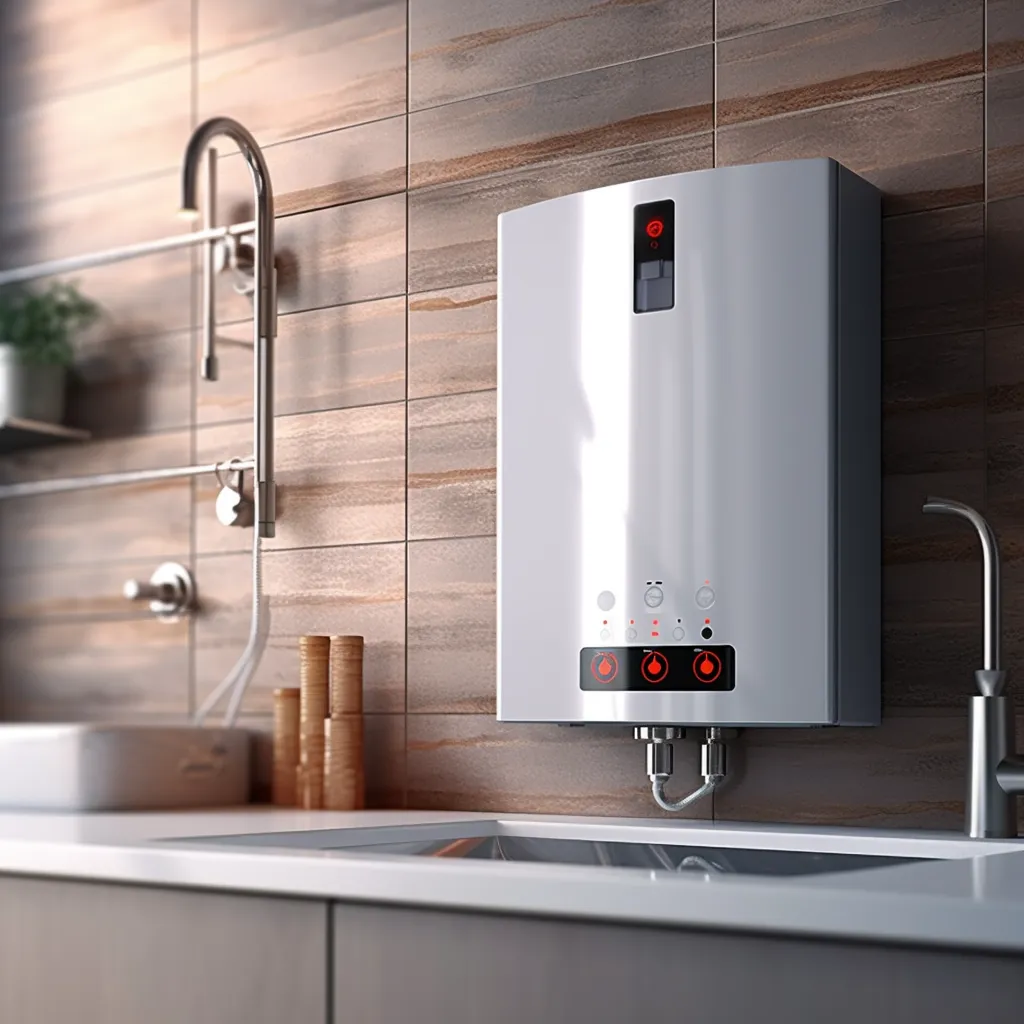Top 3 Ways to Extend Your Water Heater's Lifespan
In the comfort of our homes, few appliances are as essential yet understated as the water heater. This workhorse quietly powers our daily routines – from the hot showers that kickstart our mornings to the dishwashers running post-dinner.
When a water heater fails, however, the inconvenience and costs can be significant. The aim of this article is to arm you with expert tips to enhance the longevity of your water heater, ensuring that it serves you efficiently for years to come.

Regular Maintenance and Inspections
A well-maintained water heater isn't just a recommendation; it's a necessity. Think of your water heater as the silent sentinel of your home's comfort, tirelessly working to provide hot water at your beck and call. Regular maintenance and inspections are like the regular health check-ups you'd have for optimum health. They ensure that your water heater is not just working, but working efficiently and safely.
The Role of Regular Maintenance
The key to a long-lasting water heater lies in its upkeep. Routine maintenance acts as a preventative measure against a slew of potential problems. Corrosion, sediment build-up, and leaks are common ailments for neglected water heaters. (1)
“If you want to ensure you have reliable hot water year-round and never run the risk of unexpected icy showers, you have to regularly maintain and service your hot water heater.”
Forbes

By addressing these issues early, you're not just extending the life of your heater; you're also safeguarding your home against potential water damage, ensuring energy efficiency, and maintaining the quality of your hot water.
Consider this: a small, unnoticed leak can gradually evolve into a significant problem, leading to water damage or a complete system breakdown. Regularly inspecting your water heater allows you to catch these issues when they're small and manageable. It's the difference between a minor repair and a costly replacement.

What Does Maintenance Involve?
Maintenance of a water heater is not a Herculean task, but it does require diligence and an eye for detail. Here’s a rundown of what typical maintenance involves:
Checking for Leaks: Periodically inspect the base and connections of your water heater for any signs of moisture. Even a small amount of water can indicate a leak, which, if left unchecked, can lead to rusting and severe damage.
Inspecting the Anode Rod: The anode rod is the unsung hero of your water heater. This rod sacrifices itself to corrosion so that the tank doesn’t have to. Inspect it annually for excessive wear and replace it when it's depleted. This simple act can add
years to your water heater’s lifespan.Temperature and Pressure Relief Valve (T&P Valve) Testing: This valve is a critical safety feature. It helps to relieve pressure if your water heater gets too hot or if the pressure gets too high. Testing this valve ensures that it's operational and can prevent catastrophic failures.
Flushing the Tank: Sediment can accumulate at the bottom of your tank, especially in areas with hard water. This sediment acts as an insulator, making your heater work harder to heat the water. An annual flush of the tank can keep it running efficiently.
Professional Inspections
While a DIY approach is commendable, the expertise of a professional plumber is invaluable. A professional inspection goes beyond the superficial checks. It delves into the nitty-gritty of your water heater's health. Professionals have the tools and knowledge to diagnose issues that may not be apparent to the untrained eye.
During an inspection, a professional plumber will check the overall condition of the water heater, including the burners, venting system, and the integrity of the tank itself. They'll also assess the installation quality and ensure that it meets all local code requirements. This is crucial because improper installation can not only decrease efficiency but also pose significant safety risks.
Regular maintenance and professional inspections are investments in your home's comfort and safety. They’re essential practices that keep your water heater in prime condition, ensuring it operates efficiently and lasts as long as possible. Think of them as your first line of defense against the inconvenience and expense of premature water heater failure.
Understanding and Managing Water Quality
Hard water, rich in minerals like calcium and magnesium, can be a silent killer for water heaters. These minerals accumulate over time, forming sediment at the bottom of the tank. This sediment acts as a barrier, making the heater work harder and less efficiently, leading to higher energy bills and reduced lifespan.
Solutions for Hard Water
Combatting hard water starts with installing a water softener. This device removes the hardness minerals from your water, protecting your heater from sediment build-up. Other solutions include periodic flushing of the tank to remove sediment and using water treatment additives.

Optimizing Water Heater Settings
Setting the right temperature on your water heater is a balancing act. Too high, and you risk overheating and premature wear; too low, and you may face bacterial growth. The sweet spot? Typically around 120-130°F. This range ensures efficient operation without putting undue stress
Vacation Mode and Off-Peak Hours
If you're away from home for an extended period, setting your water heater to 'Vacation Mode' can save energy and reduce wear. Additionally, operating your water heater during off-peak hours can enhance efficiency and longevity, as there is less demand on the system.
Additional Tips and Best Practices
Insulate Your Water Heater: This simple step can reduce standby heat losses.
Ensure Proper Installation: A correctly installed unit runs more efficiently.
Annual Flush: Flushing the tank annually can prevent sediment build-up.
Remember, these small efforts contribute significantly to the longevity and efficiency of your water heater, leading to cost savings and added convenience in the long run.


Modesto Water Heaters Can Help
Taking proactive steps to care for your water heater can save you from the headache of unexpected breakdowns. Regular maintenance, understanding water quality, and optimizing settings are key. Don't wait for a problem to arise; schedule a professional inspection or maintenance service today.
Ready to Solve Your Plumbing Needs?
For reliable, expert plumbing services tailored to the needs of Melbourne and its neighboring cities, look no further than RapidFlow Water Heaters. We’re here for you 24/7, ensuring that your plumbing is always in top condition.
Call us today to schedule your service!
Business Hours: Monday - Sunday, 24 Hours
Phone Number: 321-844-2770
Location: Melbourne, FL, serving all surrounding areas.
Trust your local experts at RapidFlow Water Heaters for professional, timely, and efficient plumbing solutions.
GET IN FULL TOUCH
PHONE: 321-844-2770
EMAIL:
sam@waterheatermelbourne.com
RapidFlow Water Heaters
Melbourne, FL 32901
